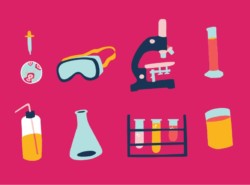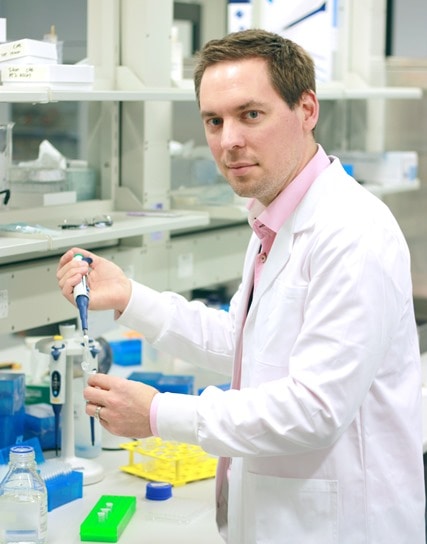
Blocking a gene driving triple negative breast cancer
Published: 10/7/19 11:23 PM

Andrew Burgess
A primary driving force behind the start and ongoing development of breast cancer is the activation of altered (mutated) genes, which can transform normal cells into cancerous cells. These mutated, cancer-causing genes are called oncogenes.
Oncogenes act like a car accelerator, driving excessive growth and spreading cancer cells throughout the body. Consequently, identifying new oncogenes and determining their function is essential for understanding how breast cancers grow and spread.
NBCF-funded Dr Andrew Burgess recently identified a new oncogene called MASTL found in high amounts in triple negative breast cancers. Dr Burgess found increased levels of MASTL were associated with higher grade, unstable tumours and poorer patient survival.
Early results show that MASTL causes normal breast cells to grow and spread abnormally. Conversely, when MASTL is removed from triple negative breast cancer cells, abnormal growth and spreading are reversed. This suggests that MASTL plays a role in rewiring breast cells to become cancerous. Previous studies have found that targeting MASTL makes cancer cells sensitive to chemotherapy.
Dr Burgess proposes that blocking MASTL would prevent the spread and growth of breast cancer and enhance response to current chemotherapies, leading to improved patient survival.
This project aims to better understand how MASTL drives breast cancer and confirm that targeting MASTL can successfully prevent breast cancer in mice models. In addition, the study will establish the foundation to develop novel treatments that target MASTL for the treatment of triple negative breast cancer.